Why is China conducting military drills near Taiwan?
China's recent military drills near Taiwan have raised concerns and prompted questions about the intentions behind such actions. The exercises, which include naval maneuvers and air patrols, have been interpreted by many as a show of force and a demonstration of China's military capabilities. However, understanding the motivations behind these drills requires a closer examination of the geopolitical dynamics at play.
One key factor driving China's military presence near Taiwan is the issue of sovereignty. China considers Taiwan to be a part of its territory and has long maintained a policy of reunification, by force if necessary. From Beijing's perspective, conducting military exercises near Taiwan sends a clear message to both the Taiwanese government and the international community that China is committed to defending its territorial integrity.
Another factor contributing to China's military drills is the broader strategic context in the Asia-Pacific region. As China continues to assert its influence and expand its military capabilities, particularly in the South China Sea, it seeks to establish itself as a dominant regional power. Military exercises near Taiwan serve to demonstrate China's military prowess and reinforce its position as a major player in regional security affairs.
Additionally, China's military drills near Taiwan may be driven by internal political considerations. Chinese leaders may use displays of military strength to bolster domestic support and rally nationalist sentiment. By portraying Taiwan as a renegade province that must be brought back into the fold, the Chinese government can appeal to a sense of national pride and unity among the Chinese population.
However, China's military activities near Taiwan also raise concerns about the potential for miscalculation and escalation. The presence of Chinese military forces in close proximity to Taiwan increases the risk of accidental clashes or misunderstandings that could spiral into a larger conflict. Moreover, such actions contribute to growing tensions in the region and undermine efforts to promote peace and stability.
In response to China's military drills near Taiwan, the international community has called for restraint and dialogue to address the underlying issues fueling tensions in the Taiwan Strait. Diplomatic efforts aimed at de-escalating tensions and finding peaceful solutions to the Taiwan issue remain crucial for maintaining stability in the region.
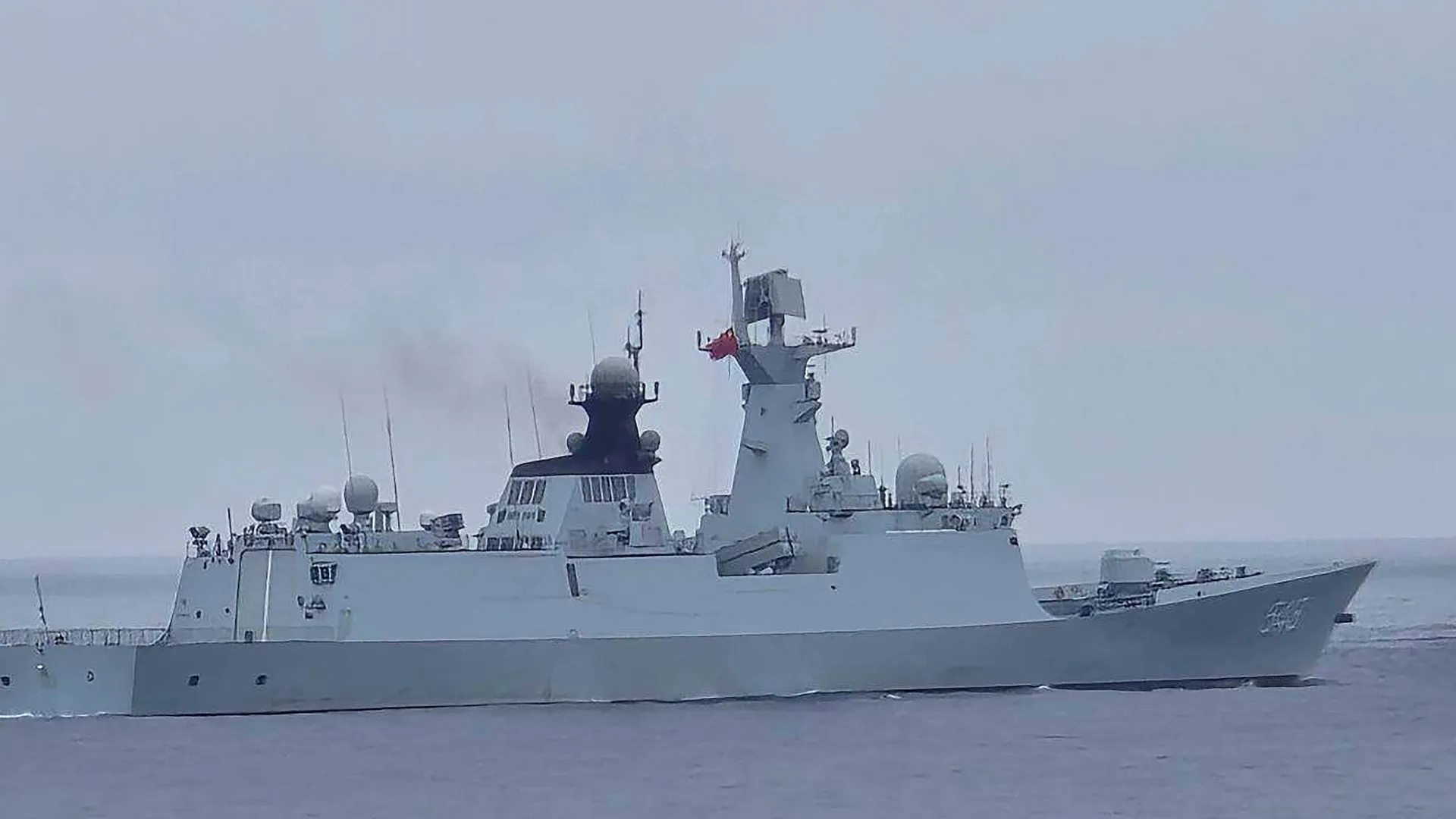
What are the implications of these drills for regional stability?
China's military drills near Taiwan have significant implications for regional stability in the Asia-Pacific region. The presence of Chinese military forces in close proximity to Taiwan has raised tensions and heightened concerns among neighboring countries and the international community. Understanding the implications of these drills requires a careful analysis of their impact on regional security dynamics.
One of the primary implications of China's military drills near Taiwan is the potential for escalation and conflict. The heightened military activity in the Taiwan Strait increases the risk of accidental clashes or misunderstandings between Chinese and Taiwanese forces, as well as other regional actors such as the United States. Any escalation of tensions could have far-reaching consequences for regional stability and security.
Moreover, China's military presence near Taiwan undermines efforts to promote peace and stability in the region. The Taiwan issue remains a highly sensitive and contentious issue in cross-strait relations, with both sides holding firm positions on sovereignty and territorial integrity. By conducting military exercises near Taiwan, China risks exacerbating existing tensions and further complicating efforts to find peaceful solutions to the Taiwan issue.
Furthermore, China's military drills near Taiwan have broader implications for regional security dynamics and power relations. The exercises serve to demonstrate China's growing military capabilities and assert its influence in the Asia-Pacific region. This has led to concerns among neighboring countries about China's intentions and its long-term strategic objectives. The presence of Chinese military forces near Taiwan could potentially embolden other regional actors to pursue more assertive security policies in response.
In addition, China's military drills near Taiwan have implications for the United States' security commitments in the region. The United States has long maintained a policy of supporting Taiwan's defense capabilities and ensuring its security against potential threats from China. The presence of Chinese military forces near Taiwan could prompt the United States to reassess its strategic posture in the Asia-Pacific region and consider additional measures to deter potential aggression.
Overall, China's military drills near Taiwan have significant implications for regional stability and security. The heightened tensions and increased military activity in the Taiwan Strait raise concerns about the potential for escalation and conflict. Moreover, the exercises undermine efforts to promote peace and stability in the region and have broader implications for power dynamics and security relations in the Asia-Pacific. Diplomatic efforts aimed at de-escalating tensions and finding peaceful solutions to the Taiwan issue remain crucial for maintaining regional stability and security.
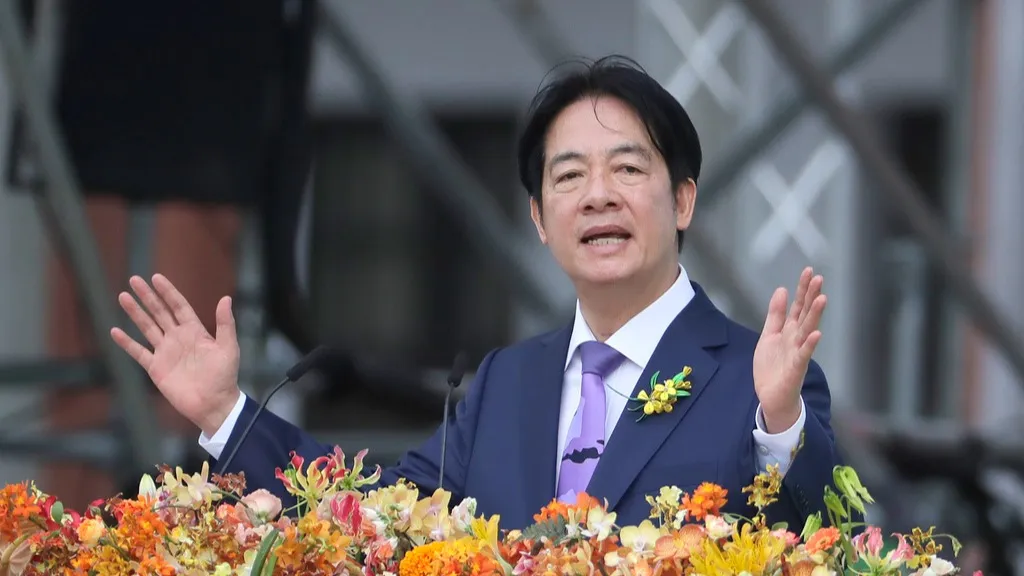
How do these drills affect Taiwan's security?
China's military drills near Taiwan have a significant impact on Taiwan's security and stability. The presence of Chinese military forces in close proximity to the island raises concerns about potential threats and challenges to Taiwan's sovereignty and territorial integrity. Understanding how these drills affect Taiwan's security requires an examination of their implications for cross-strait relations and regional dynamics.
One of the primary ways in which China's military drills affect Taiwan's security is by increasing the risk of military confrontation and conflict. The presence of Chinese warships, aircraft, and other military assets near Taiwan's airspace and territorial waters heightens tensions and raises the possibility of accidental clashes or miscalculations. This poses a direct threat to Taiwan's security and stability, as any escalation of hostilities could have severe consequences for the island and its inhabitants.
Moreover, China's military drills near Taiwan serve to undermine Taiwan's diplomatic and international standing. The exercises are often interpreted as a show of force and a demonstration of China's determination to assert its sovereignty claims over Taiwan. This puts pressure on Taiwan's government to respond and defend its interests, both domestically and internationally. The perception of increased military threats from China could also deter foreign investment and tourism in Taiwan, further undermining its economic and social stability.
Furthermore, China's military presence near Taiwan affects the island's defense strategy and capabilities. The Taiwanese government must continually assess and adapt its defense posture in response to evolving security challenges and threats from China. This may involve investing in new military technologies, enhancing cooperation with regional allies, and strengthening deterrence measures to deter potential aggression. However, Taiwan's limited military resources and capabilities mean that it faces significant challenges in maintaining a credible defense posture against China's growing military might.
In addition, China's military drills near Taiwan have broader implications for regional security dynamics and power relations. The presence of Chinese military forces in the Taiwan Strait affects the strategic calculations of neighboring countries and other regional actors, including the United States and Japan. This could lead to increased arms races, security competition, and instability in the Asia-Pacific region, further complicating efforts to promote peace and security.
Overall, China's military drills near Taiwan have a profound impact on the island's security and stability. The presence of Chinese military forces in close proximity to Taiwan poses direct threats to its sovereignty and territorial integrity, undermines its diplomatic and international standing, affects its defense strategy and capabilities, and has broader implications for regional security dynamics. Diplomatic efforts aimed at reducing tensions and promoting dialogue between Taiwan and China remain essential for maintaining peace and stability in the Taiwan Strait.
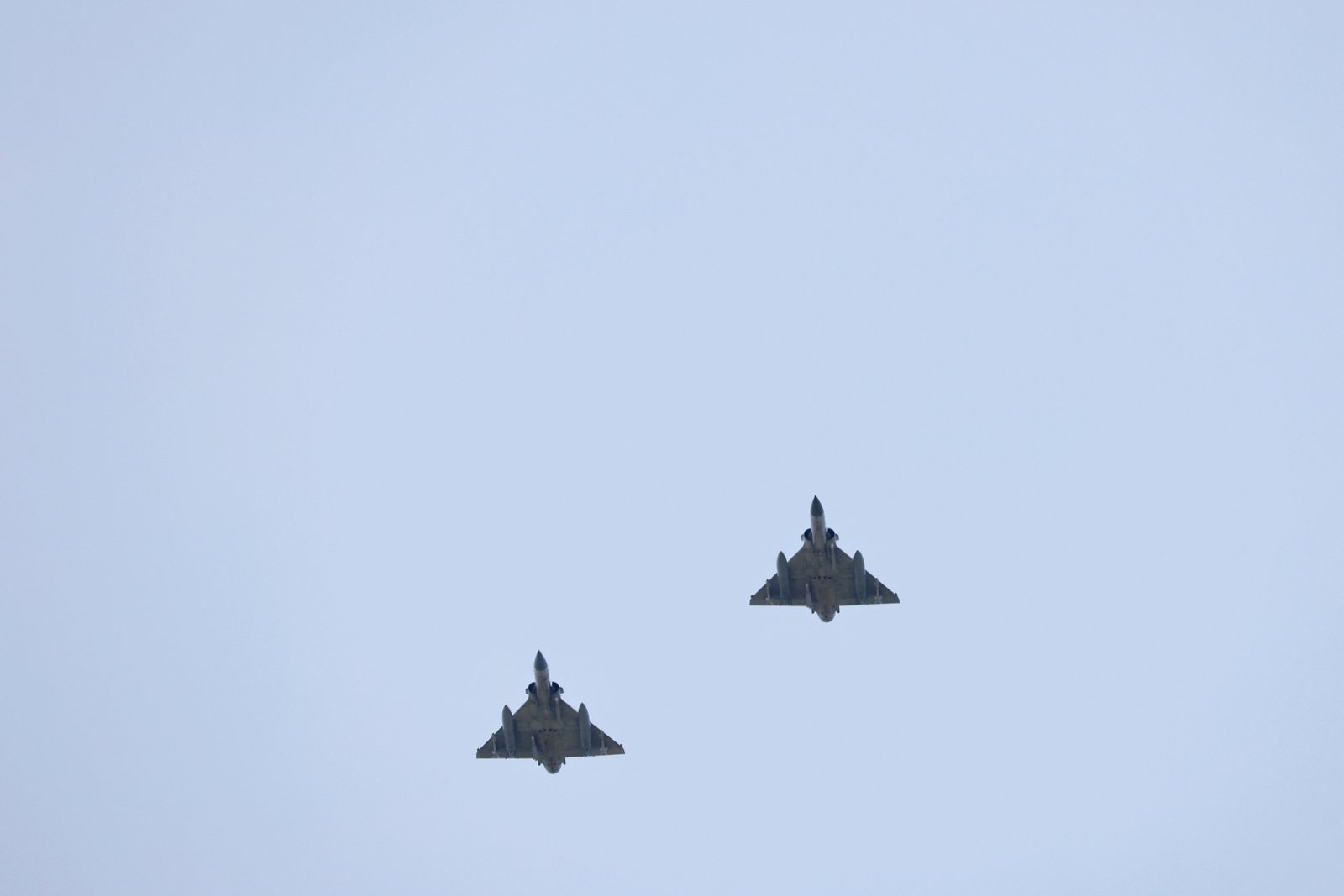
What is the international community's response to China's actions?
China's military drills near Taiwan have garnered significant attention from the international community, prompting various responses from countries and organizations around the world. The actions of China in the Taiwan Strait have raised concerns about regional stability and security, leading to diplomatic reactions and calls for restraint. Understanding the international community's response to China's actions requires an examination of the perspectives and interests of different actors involved.
One of the key responses from the international community to China's military drills near Taiwan is the expression of concern and condemnation from neighboring countries and regional allies. Countries in the Asia-Pacific region, including Japan, South Korea, and Australia, have voiced apprehension about the implications of China's actions for regional stability and security. These countries have emphasized the importance of respecting international law and norms, maintaining peace and stability in the Taiwan Strait, and resolving disputes through peaceful means.
Moreover, the United States, as a key security ally of Taiwan, has expressed strong support for Taiwan's security and sovereignty in the face of Chinese military threats. The U.S. government has reiterated its commitment to the Taiwan Relations Act, which obligates the United States to provide Taiwan with defensive arms and maintain the capacity to resist any resort to force or coercion against the island. The presence of Chinese military forces near Taiwan has prompted the United States to increase its military presence in the region and conduct joint military exercises with Taiwan to demonstrate its commitment to the island's defense.
Additionally, international organizations such as the United Nations and the European Union have urged all parties involved to exercise restraint and avoid actions that could escalate tensions in the Taiwan Strait. These organizations have emphasized the importance of dialogue, diplomacy, and peaceful resolution of disputes to maintain regional stability and security. They have called on China to respect Taiwan's democratic institutions and refrain from any actions that could undermine Taiwan's autonomy and self-determination.
However, some countries, particularly those with close economic ties to China, have adopted a more cautious approach in responding to China's military drills near Taiwan. These countries have emphasized the importance of maintaining constructive engagement with China while also expressing concerns about the implications of China's actions for regional stability. They have called for dialogue and diplomacy to address the underlying issues fueling tensions in the Taiwan Strait and promote peaceful resolution of disputes.
Overall, the international community's response to China's military drills near Taiwan reflects a mix of concern, support for Taiwan's security and sovereignty, and calls for restraint and dialogue to maintain regional stability. The actions of China in the Taiwan Strait have underscored the complex dynamics and competing interests at play in the Asia-Pacific region, highlighting the importance of diplomatic efforts to address tensions and promote peace and security.

Are these drills indicative of heightened tensions in the region?
China's military drills near Taiwan have sparked concerns about heightened tensions in the region, with many observers interpreting these actions as a deliberate show of force and a demonstration of China's resolve to assert its territorial claims. The presence of Chinese military forces in close proximity to Taiwan has raised questions about the stability of the Taiwan Strait and the potential for conflict. Understanding whether these drills are indicative of heightened tensions in the region requires an examination of the broader geopolitical context and the intentions behind China's actions.
One perspective is that China's military drills near Taiwan are indeed indicative of heightened tensions in the region, as they represent a significant escalation of China's military activities in the Taiwan Strait. The exercises, which involve naval maneuvers, air patrols, and missile tests, demonstrate China's growing assertiveness and willingness to challenge the status quo in the Asia-Pacific region. The presence of Chinese military forces near Taiwan increases the risk of accidental clashes or miscalculations, raising concerns about the potential for conflict and instability.
Moreover, China's military drills near Taiwan have been accompanied by increasingly assertive rhetoric from Chinese officials, who have warned against any attempts to challenge China's sovereignty and territorial integrity. This aggressive posture has contributed to a sense of unease among neighboring countries and regional allies, who view China's actions as a threat to regional stability and security. The United States, in particular, has expressed concern about China's military buildup in the Taiwan Strait and its implications for the balance of power in the region.
However, another perspective is that China's military drills near Taiwan may be part of a broader strategy aimed at achieving political objectives through coercive means, rather than signaling an imminent threat of military conflict. Some analysts argue that China's actions are intended to intimidate Taiwan and deter it from pursuing further steps towards independence, rather than provoke an outright military confrontation. From this perspective, China's military drills near Taiwan may be viewed as a calculated maneuver designed to exert pressure on the Taiwanese government and influence its decision-making.
Furthermore, China's military activities in the Taiwan Strait must be understood in the context of its broader strategic goals and ambitions in the Asia-Pacific region. China seeks to establish itself as a dominant regional power and secure its interests in the Taiwan Strait, which it considers to be a core national interest. By demonstrating its military capabilities and resolve, China aims to assert its influence and deter potential challenges to its authority in the region.
How does the United States view China's military maneuvers near Taiwan?
The United States closely monitors China's military maneuvers near Taiwan and views them with concern due to their potential implications for regional stability and security. As a key security ally of Taiwan and a major player in the Asia-Pacific region, the United States has a vested interest in ensuring peace and stability in the Taiwan Strait. Understanding how the United States views China's military activities near Taiwan requires an examination of its strategic interests, security commitments, and broader geopolitical considerations.
From the perspective of the United States, China's military maneuvers near Taiwan are seen as part of a broader pattern of assertive behavior and strategic competition in the Asia-Pacific region. The presence of Chinese military forces in close proximity to Taiwan raises concerns about the potential for conflict and instability, as well as China's intentions towards Taiwan and the broader region. The United States views China's actions as a challenge to the status quo and a threat to the balance of power in the Taiwan Strait.
Moreover, the United States has expressed strong support for Taiwan's security and sovereignty in the face of Chinese military threats. The U.S. government is committed to upholding the principles of the Taiwan Relations Act, which obligates the United States to provide Taiwan with defensive arms and maintain the capacity to resist any resort to force or coercion against the island. In response to China's military drills near Taiwan, the United States has increased its military presence in the region, conducted joint military exercises with Taiwan, and reiterated its commitment to defending Taiwan against any external aggression.
Furthermore, the United States views China's military activities near Taiwan in the context of broader strategic competition and rivalry between the two countries. China's growing military capabilities and assertive behavior in the Asia-Pacific region pose challenges to U.S. interests and influence, and the United States seeks to counterbalance China's rise and maintain its strategic position in the region. The presence of Chinese military forces near Taiwan is therefore viewed through the lens of U.S.-China strategic competition, with the United States seeking to deter potential aggression and uphold the status quo in the Taiwan Strait.
In addition, the United States views China's military maneuvers near Taiwan as a test of its commitment to regional stability and security. The United States has called on China to exercise restraint and avoid actions that could escalate tensions in the Taiwan Strait. At the same time, the United States has reaffirmed its commitment to the One-China policy, which recognizes Beijing as the sole legal government of China but also maintains unofficial relations with Taiwan. The United States seeks to balance its support for Taiwan's security with its broader strategic interests and objectives in the Asia-Pacific region.
Overall, the United States views China's military maneuvers near Taiwan with concern due to their potential implications for regional stability and security. The presence of Chinese military forces in close proximity to Taiwan raises concerns about the risk of conflict and instability, as well as China's intentions towards Taiwan and the broader region. The United States is committed to upholding its security commitments to Taiwan and maintaining peace and stability in the Taiwan Strait, while also managing its broader strategic competition with China in the Asia-Pacific region. Diplomatic efforts aimed at reducing tensions and promoting dialogue between Taiwan and China remain crucial for maintaining peace and stability in the Taiwan Strait.
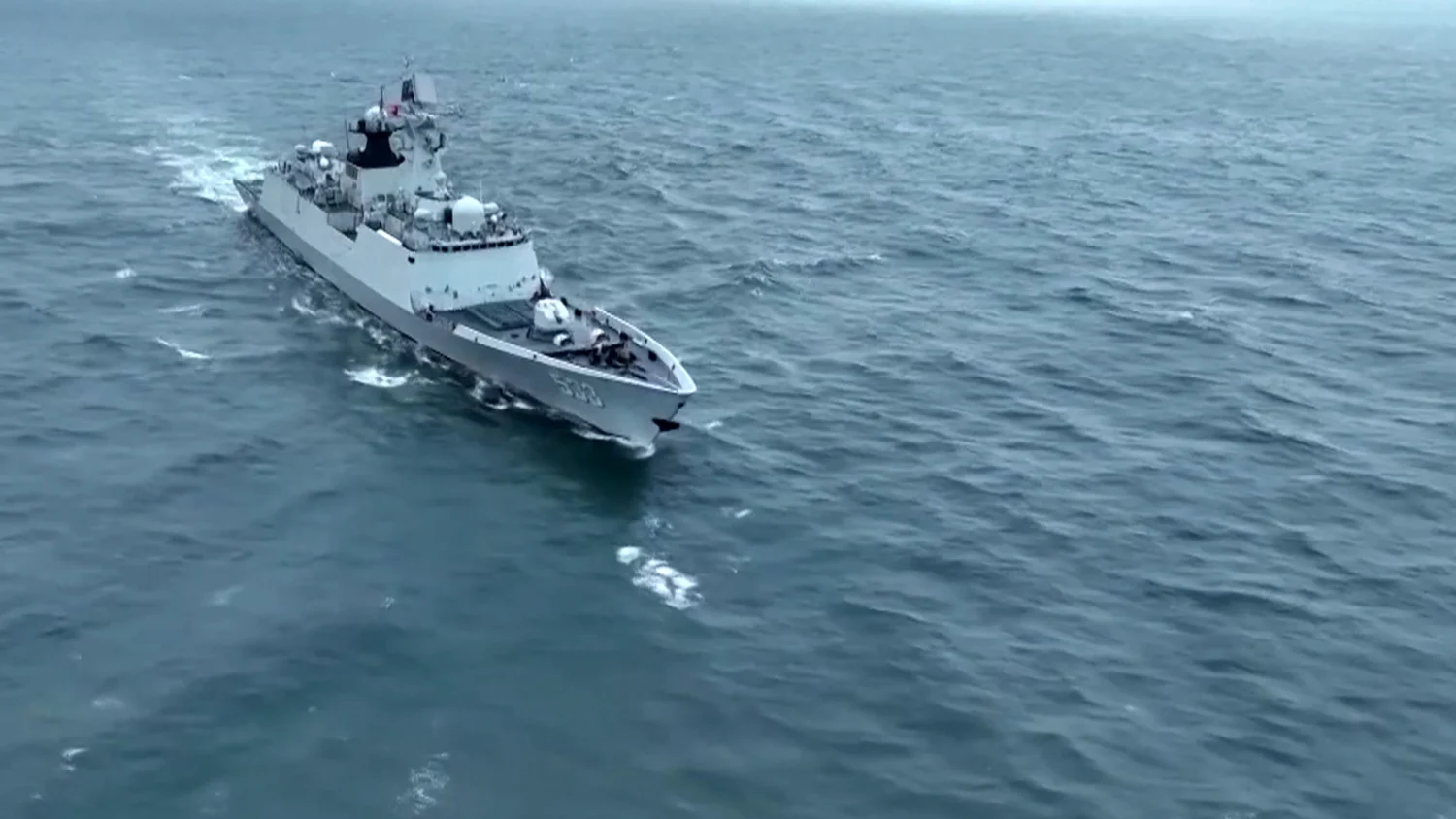
What are the historical factors contributing to tensions between China and Taiwan?
The tensions between China and Taiwan have deep historical roots, dating back to the Chinese Civil War and the establishment of the People's Republic of China (PRC) and the Republic of China (ROC) on the island of Taiwan. Understanding the historical factors contributing to tensions between China and Taiwan is essential for comprehending the complexities of the cross-strait relationship and the challenges to achieving peaceful resolution.
One of the primary historical factors contributing to tensions between China and Taiwan is the unresolved issue of sovereignty and territorial integrity. Following the Chinese Civil War, the defeated Nationalist government fled to Taiwan and established the ROC, while the Communist forces established the PRC on the mainland. Both governments claim to be the legitimate government of all of China, including Taiwan, leading to a protracted dispute over Taiwan's political status and sovereignty.
Moreover, historical animosities and political divisions between the Communist Party of China (CPC) and the Nationalist Party (Kuomintang) have further complicated efforts to resolve the Taiwan issue. The CPC views Taiwan as a renegade province that must be reunified with the mainland, while the Kuomintang maintains a separate identity for Taiwan and advocates for its continued autonomy. These differing ideological and political perspectives have fueled tensions and hindered efforts at reconciliation between the two sides.
Furthermore, external interventions and geopolitical considerations have played a significant role in exacerbating tensions between China and Taiwan. During the Cold War era, the United States provided military and economic support to Taiwan as part of its containment policy against the spread of communism in Asia. The Taiwan Relations Act of 1979, which commits the United States to provide Taiwan with defensive arms, further complicates the cross-strait relationship and contributes to China's concerns about external interference in its internal affairs.
Additionally, Taiwan's evolving identity and democratic development have added another layer of complexity to the cross-strait relationship. Since the 1990s, Taiwan has undergone a remarkable transformation from an authoritarian regime to a vibrant democracy with a distinct national identity. The growing sense of Taiwanese identity and desire for self-determination have complicated efforts to resolve the Taiwan issue peacefully, as Taiwan's population increasingly sees itself as separate from mainland China.
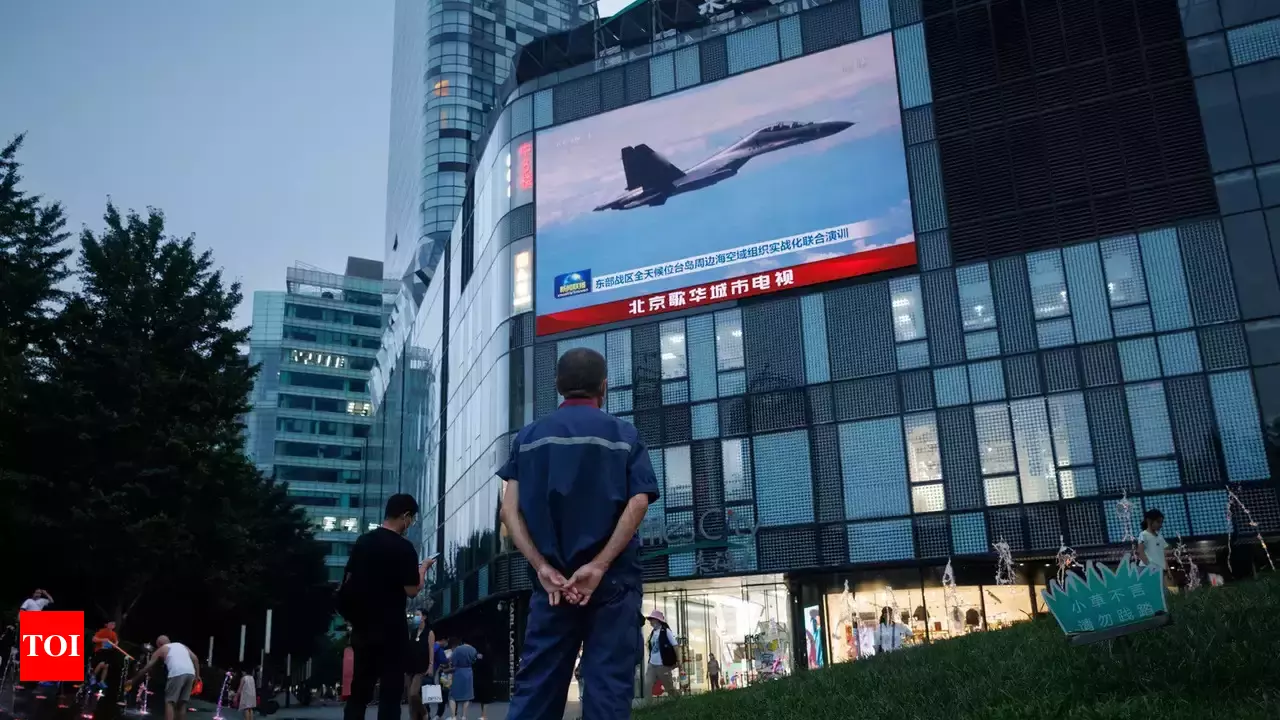
Are there diplomatic efforts to address tensions between China and Taiwan?
Diplomatic efforts to address tensions between China and Taiwan have been ongoing for decades, with various initiatives aimed at promoting dialogue, reducing mistrust, and finding peaceful solutions to the Taiwan issue. Despite the complexities of the cross-strait relationship and the historical animosities between the two sides, diplomatic channels remain open, and efforts to engage in dialogue continue. Understanding the diplomatic efforts to address tensions between China and Taiwan requires an examination of the different approaches and strategies employed by both sides and the international community.
One of the primary diplomatic efforts to address tensions between China and Taiwan is the policy of "peaceful reunification" advocated by the Chinese government. China's approach to Taiwan emphasizes the importance of maintaining stability and peace in the Taiwan Strait while seeking to promote economic integration and people-to-people exchanges between the two sides. The Chinese government has proposed various initiatives, such as the "One Country, Two Systems" framework, as a potential model for reunification, although Taiwan has rejected this proposal as incompatible with its democratic system and values.
Moreover, Taiwan's government has pursued a policy of "flexible diplomacy" in its efforts to engage with China and the international community while maintaining its autonomy and sovereignty. Taiwan seeks to expand its international space and participate in global affairs despite its diplomatic isolation due to pressure from China, which seeks to restrict Taiwan's international recognition and influence. Taiwan's government has emphasized the importance of dialogue and engagement with China based on the principles of equality, dignity, and reciprocity.
Furthermore, diplomatic efforts to address tensions between China and Taiwan have been facilitated by third-party actors, including the United States and other regional powers. The United States, as a key security ally of Taiwan, plays a significant role in maintaining peace and stability in the Taiwan Strait through its security commitments and diplomatic engagement with both sides. The United States has called for peaceful resolution of the Taiwan issue through dialogue and has urged all parties to refrain from actions that could escalate tensions.
Additionally, international organizations such as the United Nations and the European Union have also supported diplomatic efforts to address tensions between China and Taiwan. These organizations have emphasized the importance of dialogue, confidence-building measures, and mutual understanding in promoting peace and stability in the Taiwan Strait. They have called on both sides to engage in constructive dialogue and refrain from actions that could undermine regional stability.

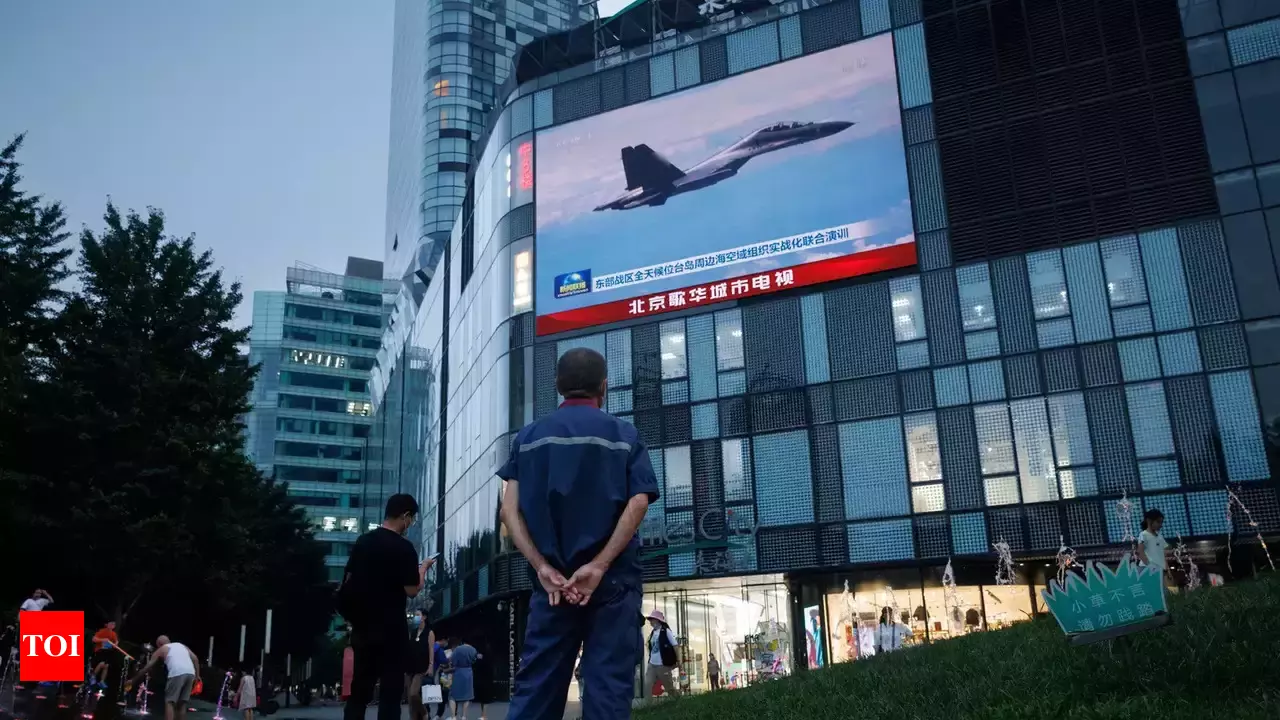

You must be logged in to post a comment.